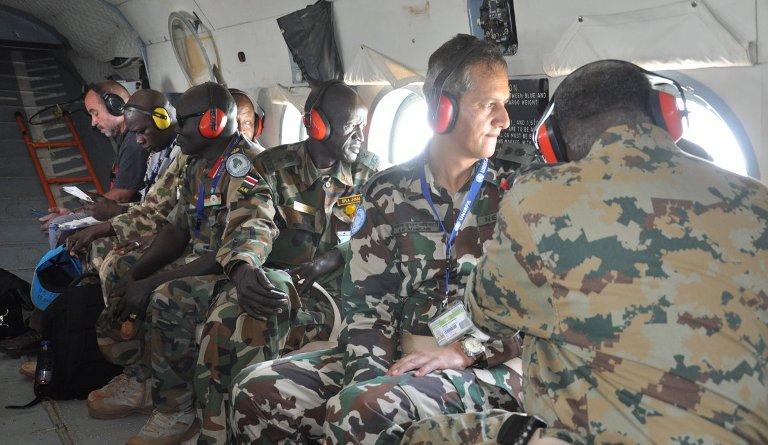Sudan, South Sudan resume air border patrols: UNISFA

October 10, 2017 (KHARTOUM) – Sudan and South Sudan have resumed border air patrols since last September, five years after the signing of a security agreement providing to prevent cross-border attacks, said the United Nations on Monday.
Within the framework of the Cooperation Agreement of 27 September 2012, the two countries signed a security agreement with the purpose of stopping the flow of guns and supplies to the rebel groups across the border. The deal also provided to establish a Safe Demilitarized Border Zone (SDBZ) and to deploy a Joint Border Verification and Monitoring Mission (JBVMM) with the support of the United Nations Interim Security Force for Abyei (UNISFA).
However, South Sudan government resisted the implementation of the agreement, fearing that delimitation of the SDBZ centreline, which passes through contested areas, may be seen as final location of the disputed boundary. After few monitoring operations, Juba had suspended its participation in the JMVMM ending the monitoring operations On 22 November 2013.
However, in a statement released on Monday evening, the UNISFA announced the resumption of the JBVMM operations with the participation of Sudanese and South Sudanese monitors, UNISFA military operations/technical staff, JBVMM international observers and military operations staff and United Nations Mine Action Service (UNMAS).
The JBVMM of the UNISFA “undertook a joint reconnaissance between 16 and 22 September 2017. A first of its kind air patrolling operation, it was conducted from the UNISFA Force Headquarters base in Abyei to the proposed team site locations astride” the SBDZ, said the statement.
The air patrols carried out reconnaissance of Safahah (Kiir Adim), As-Sumayh (Majak Kol) and Tishwin (Takshwin), three JBVMM sites located within the buffer zone.
Performed by air hovering operations, the reconnaissance “was significant as it enabled the team to fly at a low altitude to verify and monitor the situation on the ground”.
Last May, The United Nations Security Council (UNSC) decided to reduce UNISFA’s troops from 5,326 to 4,791.
Further, the resolution reiterated concerns about persistent delays and stalled efforts to operationalise the JBVMM and threatened to end UNISFA’s support to the border patrolling operations within six months unless the two countries activate the agreed mechanism.
Khartoum and Juba trade accusation of supporting rebel groups from both sides.
(ST)
